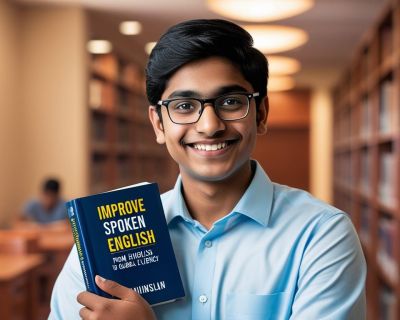The IELTS Reading test requires both speed and accuracy, making time hacks essential for success. With only 60 minutes to answer 40 questions, managing your time effectively can be the difference between an average and a high band score. Many test-takers struggle with finishing on time, often getting stuck on difficult passages or overanalyzing answers. However, with the right time-management hacks, you can read faster, identify key information quickly, and complete the test within the time limit.
This blog will share practical time hacks to help you improve efficiency, boost accuracy, and maximize your performance in the IELTS Reading test.
Understanding the IELTS Reading Test Format
Before diving into strategies, it is essential to understand the structure of the IELTS Reading test:
- Academic vs. General Training: The Academic and General Training Reading tests have different passage types but follow the same format.
- Three Sections: The test consists of three passages, each increasing in difficulty.
- 40 Questions: These include multiple-choice, matching headings, True/False/Not Given, sentence completion, and more.
- Time Limit: You have 60 minutes to complete all questions. Unlike the Listening test, there is no extra time to transfer answers.
Time Management Hacks for IELTS Reading
1. Scan the Passage Before Reading in Detail
Do not start by reading every word. Instead, scan the passage quickly to get a general idea of the topic. Pay attention to headings, subheadings, and keywords in bold or italics. This will help you understand the structure and locate answers more efficiently.
2. Read the Questions First
Before reading the passage, review the questions. This will help you focus on finding relevant information instead of reading aimlessly. Look for keywords and numbers that can guide you to the correct section in the passage.
3. Use Skimming to Find Answers Faster
Skimming allows you to move your eyes quickly over the text to get the main idea without reading every detail. Focus on the first and last sentences of each paragraph, as they often contain key information.
4. Allocate Time Wisely
Since the passages increase in difficulty, do not spend too much time on the first one. A recommended time breakdown is:
- Passage 1: 15 minutes
- Passage 2: 20 minutes
- Passage 3: 25 minutes
If a question seems too difficult, move on and return to it later if time allows.
5. Watch Out for Traps in True/False/Not Given Questions
This question type can be tricky. Keep these rules in mind:
- True: The statement matches the passage.
- False: The passage contradicts the statement.
- Not Given: There is no information about it in the passage.
If unsure, avoid wasting time and make an educated guess before moving on.
6. Recognize Synonyms and Paraphrasing
IELTS Reading often uses different words with the same meaning. Instead of looking for exact word matches, focus on synonyms and paraphrases. For example:
- “Difficult” might appear as “challenging.”
- “Increase” could be written as “rise” or “growth.”
Developing this skill will help you locate answers faster.
7. Write Answers Directly on the Answer Sheet
Since there is no extra time to transfer answers, write them directly on the answer sheet to save time. Be careful with spelling and grammar, as incorrect spelling can lead to lost marks.
8. Practice with Timed Tests
One of the best ways to improve your speed is by practicing full-length IELTS Reading tests under timed conditions. This will help you get comfortable with the format and improve your ability to manage time effectively.
How Kandor Can Help You Prepare for IELTS Reading
Kandor simplifies IELTS preparation with AI-powered mock tests, instant feedback, and in-depth analytics to track progress. The platform offers a structured study plan, covering essential skills such as skimming, scanning, and identifying key information quickly. With Kandor, test-takers can practice in real exam conditions, refine their time-management strategies, and gain confidence before taking the IELTS Reading test.




















